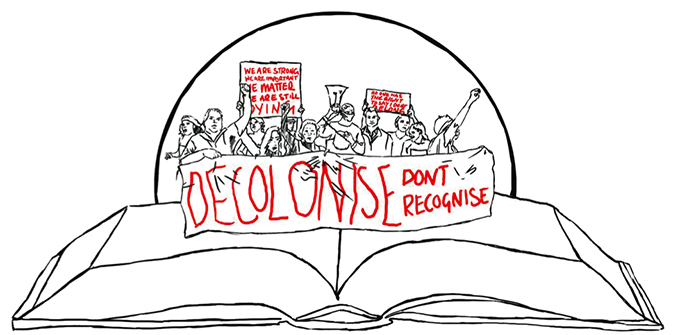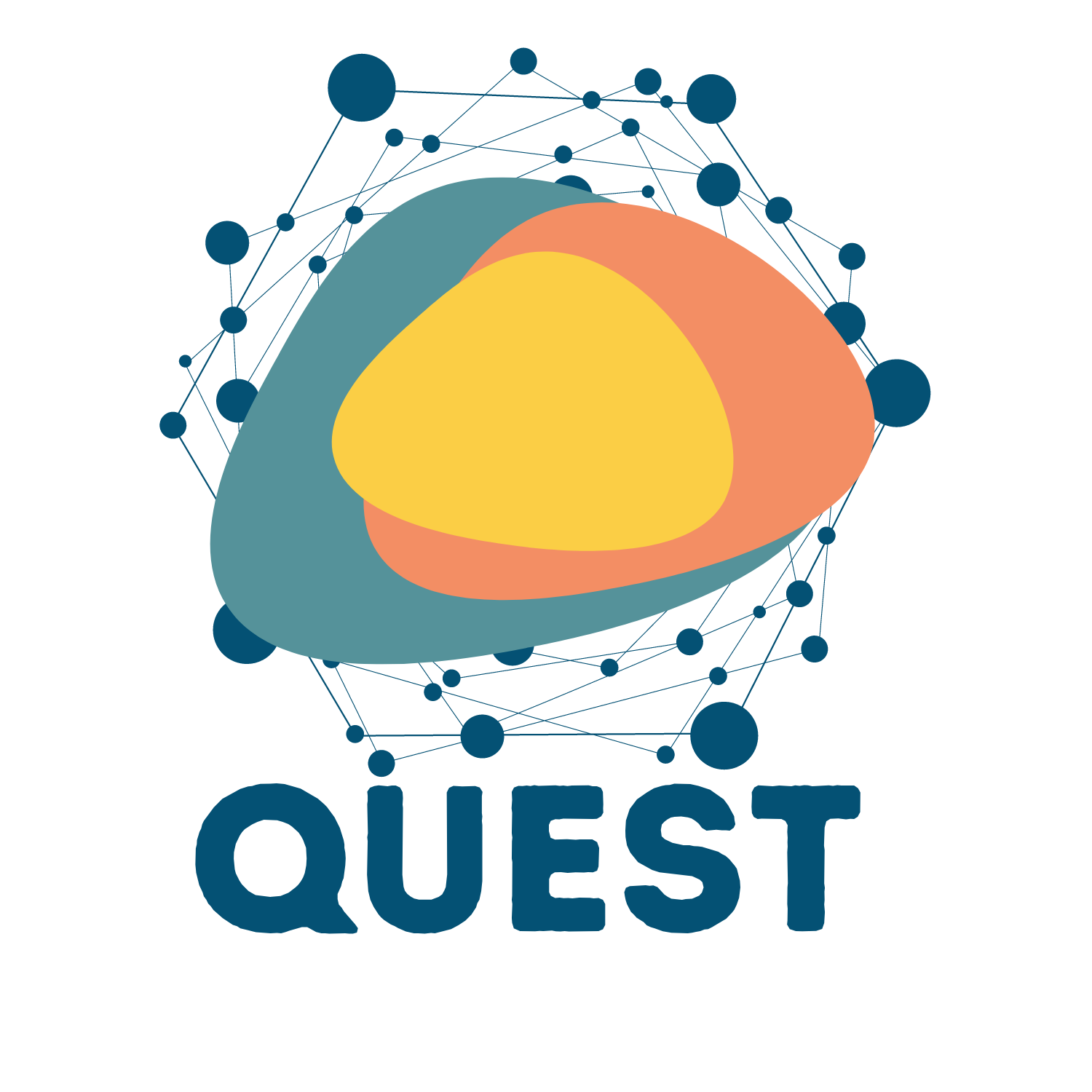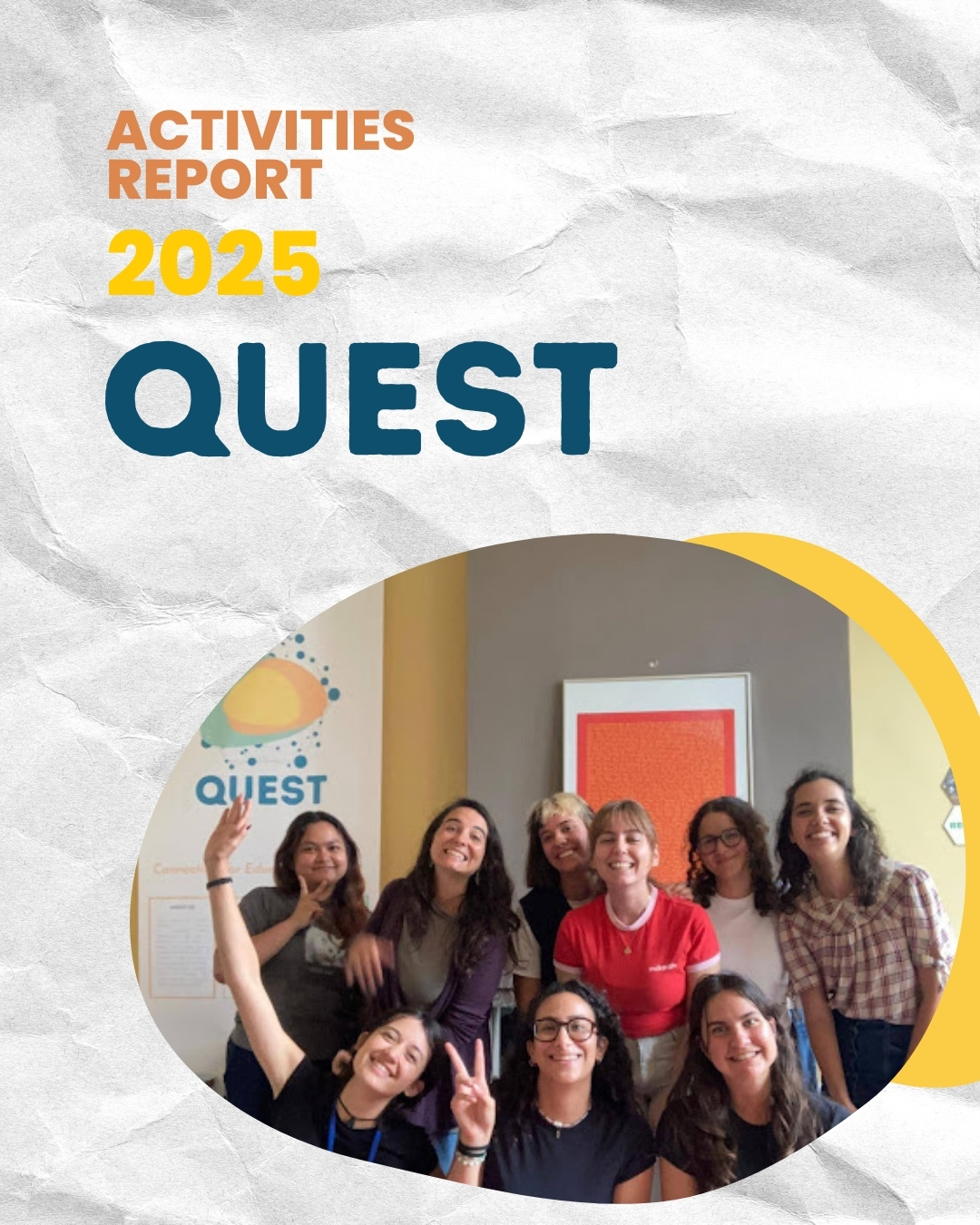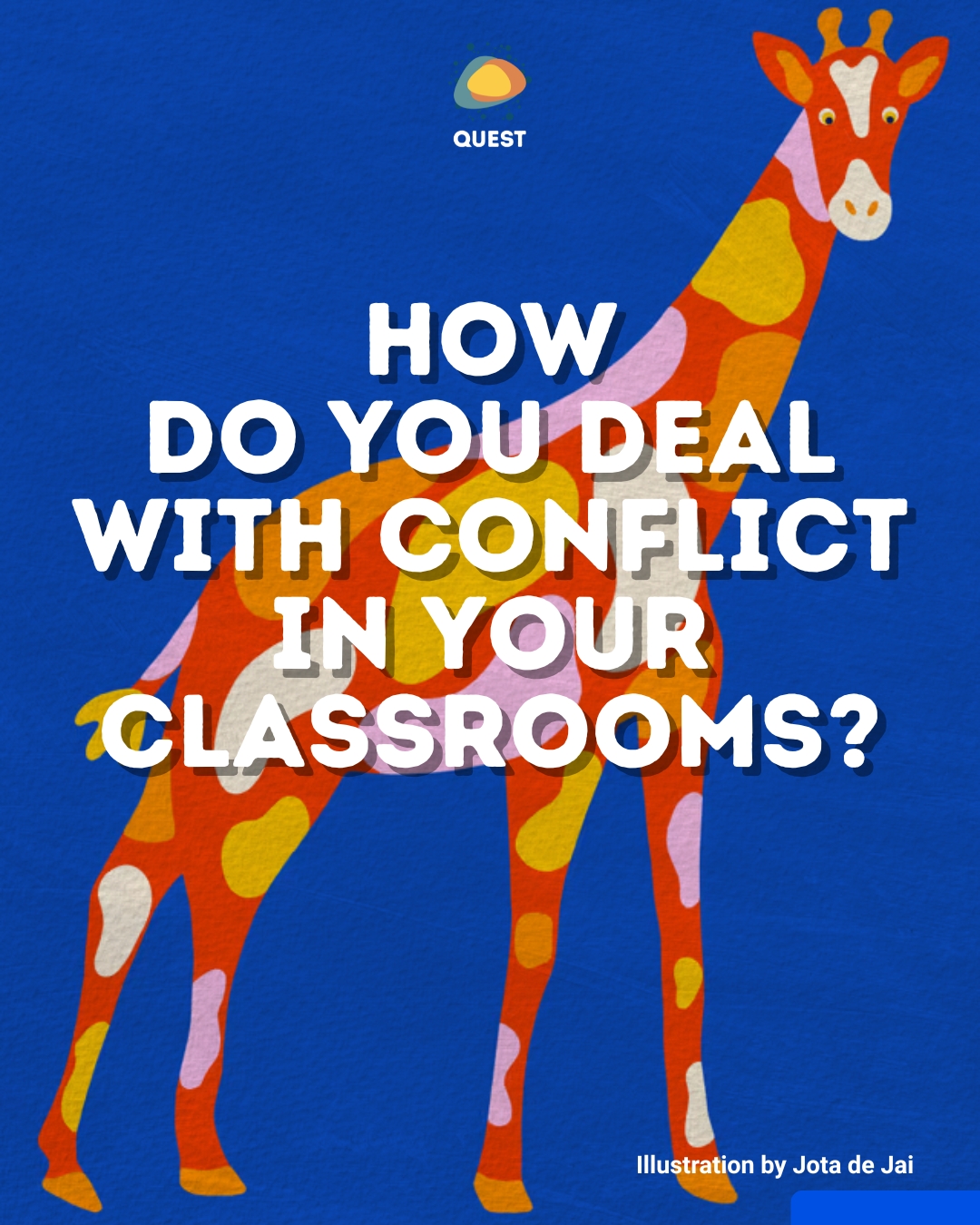When we think of colonialism, we often picture maps, conquests, territorial control, genocides and empires. But colonialism didn’t just create borders, it reshaped the way we think about the world, including what counts as knowledge and whose voices matter. Even long after formal colonial rule ended, many of these ideas still shape our education systems today (Maldonado-Torres, 2007). This ongoing influence is what many scholars call coloniality: the lasting impact of colonial ways of thinking and organizing the world (Quijano, 2007). And one of the places where this shows up most clearly is in school curricula. That’s why more and more educators, researchers, and activists are talking about the need to decolonize education.
But what does that actually mean?

Colonialism vs. Coloniality: What’s the Difference?
- Coloniality of Power: the hierarchical structuring of the world system, which positions the Global North as the producer of knowledge and the Global South as the object of study.
- Coloniality of Knowledge: the dominance of Western scientific rationality, which delegitimizes non-Western ways of knowing.
- Coloniality of Being: the imposition of Eurocentric notions of humanity, often denying full personhood to Indigenous, Black, and other racialized populations.
These dimensions are not abstract concepts, they manifest concretely in educational systems. In the field of education, coloniality is evident in various aspects such as curriculum content, academic standards, research methodologies, and the dominance of Western epistemologies over those of Indigenous, African, and other marginalized communities (Grosfoguel, 2007). As a result, a colonial logic is reinforced, which determines which forms of knowledge are considered valid and which are not.
What Does It Mean to Decolonize the Curriculum?
Decolonizing the curriculum goes far beyond swapping out a few books on a reading list. It’s about rethinking the foundations of education: who produces knowledge, what counts as truth, and whose perspectives are heard. According to scholar Rosalba (2023), it means exposing and challenging the ongoing reproduction of Eurocentric ideas in education. And as Moncrieffe (2022) puts it, it’s also about transforming, not just critiquing. This involves:
- Questioning dominant narratives in textbooks and lesson plans.
- Centering the experiences and knowledge of students and communities historically pushed to the margins.
- Rethinking teaching methods, so that they don’t just reproduce racism, sexism, or classism in subtle ways.
- Valuing different ways of knowing, including oral traditions, lived experience, and community knowledge.
- Learning to unlearn, which means becoming aware of our assumptions and being open to other perspectives.
How Does This Look in Practice?
- Using arts: Teachers are integrating music, storytelling, theater, and visual arts into learning to allow students, especially those from marginalized backgrounds, to express their experiences and co-create knowledge. These methods do more than engage students; they validate lived experiences and civic values as forms of knowledge (Moncrieffe, 2022, p.1). They also echo broader calls for embodied pedagogies that use storytelling and counter-storytelling to challenge dominant narratives (Zavala, 2016; MacLise & Watkinson, 2023).
- Critically analyzing materials: Some teachers use tools like critical discourse analysis to examine textbooks and lesson plans, making visible how certain perspectives dominate while others are excluded. This practice helps uncover the hidden messages in education and opens up space for what Moncrieffe calls the “liberalisation of knowledge that can truly empower” learners (Moncrieffe, 2022, p.3). This is especially important in fields like science, where studies show that colonial histories and non-Western contributions are often missing (Grinsted, 2024).
- Afrocentric and community-led approaches: In the UK, some schools are adopting Afrocentric frameworks and Africana phenomenology to reshape history curricula, empowering Black students by centering African worldviews. In Poland, Black Polish parents and other minority-ethnic communities are leading grassroots initiatives to challenge racism and redefine how identity and knowledge are taught (Moncrieffe, 2022).
- Restructuring classroom dynamics: Decolonial practice also means rethinking how classrooms themselves are structured, not just what is taught, but how. This involves moving away from traditional models where the teacher is the sole authority figure and instead fostering a classroom culture where all students are recognized as knowledge-holders. Students are encouraged to share their narratives, lived experiences, and cultural perspectives, creating a space where everyone counts, regardless of their background, origin, or identity. This participatory approach helps to challenge power imbalances and supports more inclusive, democratic learning environments.
These practices are all part of a broader shift toward what scholars call epistemic justice: the idea that everyone should have the right to contribute to and benefit from knowledge.
The Bigger Picture: A Pluriverse of Knowledge
At the heart of all these efforts is a simple but powerful idea: there’s not just one way to know the world. This is called epistemological plurality: the understanding that knowledge comes in many forms, shaped by different cultures, histories, and experiences. Philosopher Walter Mignolo (2012) calls this “border thinking”: the ability to think from the cracks and edges of dominant systems, to imagine something better.
Decolonizing the curriculum is about making education more just, inclusive, and human.
What are we doing at QUEST?
At QUEST, we believe that education should not only reflect the diversity of the world but also actively work to challenge the inequalities that shape it. That’s why we’re committed to bringing decolonial practices into classrooms, not just in theory, but in everyday school life.
One of our key initiatives is DECUS: Decolonizing Curricula in Secondary Schools, a project designed to support teachers, schools, and communities in rethinking how knowledge is taught, shared, and valued. If you’d like to learn more, you can read a summary of the project here or follow all updates on DECUS’ social media channels.
Decolonising the curriculum itself is however not enough. What is important is to also couple this work with an accurate rethinking of the educational structures and processes. Indeed, efforts to decolonise education by incorporating Indigenous content into unchanged institutional structures could just perpetuate coercion. That’s why QUEST also works to promote democratic education culture. That means creating learning spaces that are consent-based, respectful, and grounded in children’s rights as human rights. It means listening to students’ voices, recognizing their agency, and building educational cultures based on dialogue, mutual respect, and shared responsibility.
In doing so, we hope to lay the foundation for a new paradigm of education: one that is truly liberatory, rooted in justice, and animated by what Mignolo calls “border thinking”
REFERENCES:
Grinsted, L., Murgatroyd, C., & Burkett, J. (2024). Exploring attitudes to decolonising the science curriculum—A UK Higher Education case study. PLoS ONE, 19(11). https://doi.org/10.1371/journal.pone.0312586
Grosfoguel, R. (2007). THE EPISTEMIC DECOLONIAL TURN: Beyond political-economy paradigms1 . Cultural Studies, 21(2–3), 211–223. https://doi.org/10.1080/09502380601162514
Hutchinson, Y., Ochoa, A. A. C., Paulson, J., & Tikly, L. (Eds.). (2023). Decolonizing education for sustainable futures. Policy Press.
Icaza, R. (2023). Tanteando en la oscuridad:: Decolonial Feminist Horizons.
Katherine Wimpenny, Jos Beelen, Karine Hindrix, Virginia King & Ellen Sjoer (2022) Curriculum internationalization and the ‘decolonizing academic’, Higher Education Research & Development, 41:7, 2490-2505, DOI: 10.1080/07294360.2021.2014406
Maclise, E., & Watkinson, T. (n.d.). A Guide to Decolonizing the Classroom. www.nccih.ca/en/
Maldonado-Torres, N. (2007). On the coloniality of being: Contributions to the development of a concept. Cultural Studies, 21(2–3), 240–270. https://doi.org/10.1080/09502380601162548
Mignolo, W. (2012). Local histories/global designs: Coloniality, subaltern knowledges, and border thinking . Princeton University Press.
Moncrieffe, M. L. (Ed.). (2022). Decolonising curriculum knowledge : international perspectives and interdisciplinary approaches. Palgrave Macmillan. https://doi.org/10.1007/978-3-031-13623-8
Shahjahan, R. A., Estera, A. L., Surla, K. L., & Edwards, K. T. (2022). “Decolonizing” curriculum and pedagogy: A comparative review across disciplines and global higher education contexts. Review of Educational Research, 92(1), 73-113.
Quijano, A. (2000). La colonialidad del poder, eurocentrismo y America Latina. In E. Lander (Ed.), La colonialidad del saber: eurocentrismo y ciencias sociales (pp. 201–246). Ediciones FACES/UCV. http://www.academia.edu/download/41603428/La_colonialidad_del_saber._Eurocentrismo_y_ciencias_sociales.pdf
Quijano, A. (2007). COLONIALITY AND MODERNITY/RATIONALITY. Cultural Studies, 21(2–3), 168–178. https://doi.org/10.1080/09502380601164353
Zavala, M. (2016). Decolonial Methodologies in Education. In Encyclopedia of Educational Philosophy and Theory (pp. 1–6). Springer Singapore. https://doi.org/10.1007/978-981-287-532-7_498-1




